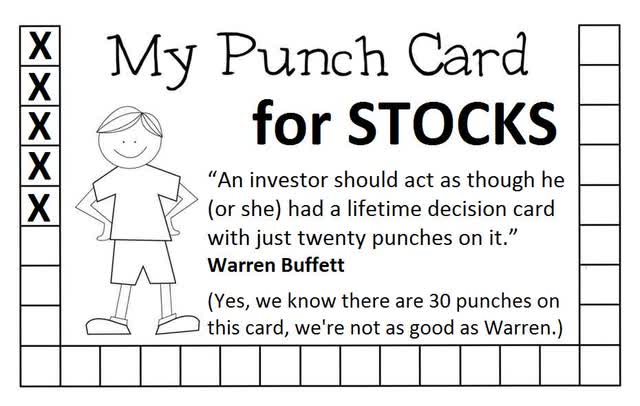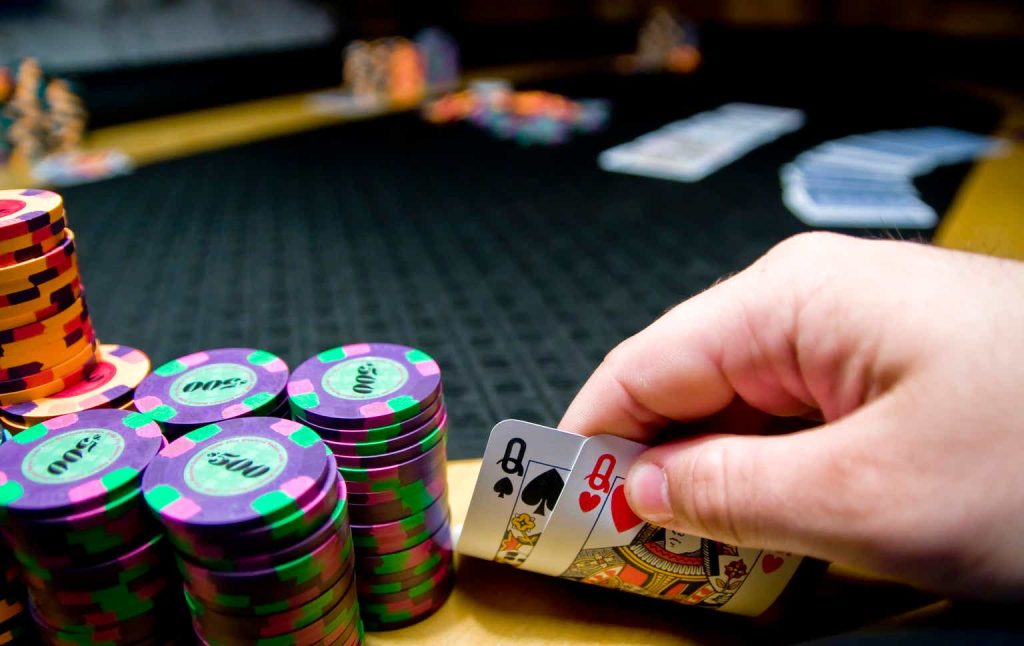I have been playing poker since a fun high school party. Infer what you want. Since then, I made my beer and gas money in college, made thousands online, paid for vacations and bought a car all with poker winnings.
I’ve been playing professional tournaments since friends pulled me back in after a 5-year poker hiatus. Switching from playing against other amateurs to the pros is a massive step. It’s a lot like investing against the big money in the markets.
There is actually a correlation between poker and investing. A study by Yan Lu, Sandra Mortel and Sugata Ray demonstrated that hedge fund managers who cashed professional poker tournaments beat the stock market by 1-5% per year. I have cashed a dozen events since 2018.
According to 1973 World Series of Poker Champion Puggy Pearson, here’s the keys to being a good gambler.
There ain’t only three things to gambling. Knowin’ the 60-40 end of a proposition, money management, and knowin’ yourself.”
Today, I’ll talk about how those first principles also apply to investing.
Johnny Moss, Chill Wills, Amarillo Slim, Jack Binion & Puggy Pearson (Wikicommons)
Know Yourself
I’ve been managing money almost 30 years and playing poker longer. Knowing myself is the hardest part of both.
Back during a high school Justice & Peace class with Mr. Pauly, I decided to try to be introspective throughout my life. I am not always good at it. But, I try.
The process of introspection has been a huge help in getting to know myself in a way that allows me to understand the risks I am really willing to take and also to accept accountability when I make a mistake.
Most poker players and investors make the same mistakes over and over. Emotions, denial of mistakes, rationalization, blaming others, faulting luck and knowing what you are truly willing to risk are all things you must deal with.
As an investor, do you blame “the market” when your stocks fall in price? Poker players often lament losing a hand with “good cards.” Maybe the company or the cards were not as good as you thought.
Do you get emotional when your stocks go up or down? Do you look at the green and red lights attached to stock prices on a computer screen everyday? Sounds like gambling to me.
My experience has been that investors who get emotional do not truly understand what they are investing in. By corollary, they do not understand the risk they are taking.
Emotional investing is similar to the poker player with a “favorite hand” that is not Aces, which they over bet all the time and usually lose with. Despite going broke frequently, they keep betting that hand and get super excited on the occasions they win a hand. Not a great long-term approach.
If you are an investor, then you need to “do the reading” to become a better investor. The same is true with poker. If you really want to beat “the game,” then you better become a lifelong learner. Be honest with yourself about whether or not you are doing the work to be an investor.
As you learn more about investing, you will learn more about yourself. The more you learn, the more you understand how risky investing is.
Over decades, I have come to the conclusion that 80% (or more) of stocks are not worth taking single stock risk on. That is, there is fewer than 20% of stocks that I am willing to risk my money on owning.
I am not telling you that you have to feel the same way, but, you need to know what risks you are willing to take. If you don’t know that, you better be extra careful, because there’s a lot more risk out there than you probably recognize.
Through the successes and failures of trying to be introspective, I have become a better poker player and investor. I would implore anyone who wants better results at either to start with getting to know yourself.
Money Management
In poker you have to manage your chip stack while looking for spots to play hands. If you make too many bets and lose with weaker hands, you will not have the money to make bigger bets when you get bigger hands.
Investing is a lot like that. So much so, that I regularly “recycle” the cash in my account by selling cash-secured puts and covered calls so that I always have some cash to invest if a great company’s stock is ever on sale.
Notice that I said a “great company.” I do not deliberately invest in “good companies.” I only try to invest in great companies or companies that can become great. That gives me a significant margin of safety, which I need, because I make mistakes and companies sometimes do not execute on even the best ideas.
The ETF portion of my portfolio will have good, and not so good, companies by default. So, why would I ever commit my hard earned money to a company that I did not think was great or on its way?
I think “stock collectors” often fail this test of focusing on great companies. It is a lesson that reading Buffett’s Berkshire Hathaway (BRK.B) letters make repeatedly.
What do I mean by “stock collectors?” Well, I know this will irritate some people, but if you own over 30 stocks, I do not think you are much of an investor. I think you are collector.
Here’s what Warren Buffett has said in some form numerous times as recounted by Charlie Munger at USC in 1994.
I could improve your ultimate financial welfare by giving you a ticket with only 20 slots in it so that you had 20 punches—representing all the investments that you got to make in a lifetime. And once you’d punched through the card, you couldn’t make any more investments at all. Under those rules, you’d really think carefully about what you did and you’d be forced to load up on what you’d really thought about. So you’d do so much better.”
I have adapted that to what I call my “Punch Card Stocks” lists. I have one for growth and one for dividends. I never own more than 30 stocks at a time for clients of my investment firm. Why 30 and not 20? Easy, I’m not as good as Warren.
Punch Card Stocks (Kirk Spano)
In poker, if you play primarily the best starting hands, you will win a lot more in the long-term. That doesn’t mean you won’t lose from time to time, there’s a lot of luck in poker. But, by playing better cards, you will win more often.
For investing, the same is true. If you don’t throw money at “just good” ideas, you will have more to invest when a truly “great idea” comes around.
And, by learning to sell options, you will have a regular source of added income to invest into great ideas when they are available.
60/40 Bets Mean Gamble Less
Annie Duke was a great professional poker player during the post-Moneymaker boom poker years. Since then, she has been writing business books. Good ones in my opinion.
One of her central themes is to avoid making hard decisions if you can. Why is that? It is because the harder the decision, the more likely you are to be wrong and lose.
Betting Aces is easy in poker. Finding a spot for 8-9 suited is a lot harder. If you are an investor, you can look for premium hands, there is no shuffle.
With investing, we have problems of information and of understanding. Even with AI, it is very difficult to know everything about a company and keep all the information straight. Even if we do know most of what we need to know, we still have to make a good analysis of whether or not the stock is priced well enough to pass on profits to me the shareholder at some point.
Far too many investors not only buy too many stocks, but they buy the wrong ones because they are trying to make “hero calls.” In poker that means calling a bet when you probably should not. Sometimes it works, but studies of poker players demonstrate that more than two-thirds of the time when a player raises you, you are indeed beat.
Here’s where I will mix metaphors a bit. Again with Buffett:
I call investing the greatest business in the world because you never have to swing. You stand at the plate, the pitcher throws you General Motors at 47! U.S. Steel at 39! and nobody calls a strike on you. There’s no penalty except opportunity lost. All day you wait for the pitch you like, then when the fielders are asleep, you step up and hit it.”
1974 Fortune Interview after Buffett had been away from investing for 5-years after selling his first partnership.
There are other analogies that Buffett has used that are similar. Essentially, he is saying that investing is a “no called strikes” game. You can wait for a great pitch.
Poker of course is different, you can wait to long to play and get blinded out. With investing, you generally want to be invested, but, you can wait for great spots. There’s no need to gamble just to get it in.
If you are an ETF investor, and you probably should be, then dollar cost averaging into a basket of ETFs that have tactical and diversification benefits makes a lot of sense. I know many folks like investing in S&P 500 index ETF (SPY) (VOO) incrementally. That’s not great, but, it’s better than sitting in the bank for years.
Cashing
Way back in 2003, I started playing online poker after seeing Chris Moneymaker win the World Series of Poker. He had won his $10,000 entry after winning an $86 online tournament. I won $10,000 entries in both 2004 and 2005 back when the game was easier.
Since then, poker has gotten harder as more people learn the game. Investing is similar. Large cap markets have become very “efficient” in that most of the stocks in the S&P 500 are highly correlated most of the time.
The lesson here is that maybe it is that small bet where the bigger upside is. Should I invest so much in large caps? Large caps are already big and are very economically tied.
Big companies have small moves, small companies have big moves.”
Peter Lynch – One Up On Wall Street
If you truly want to make money investing, sometimes it is time to open your range a little bit. Given a massive 2-year bear market in small cap stocks, I think you might want to look there for some winners.
Read the full article here













